Woolwich IRA pub bombing: No inquests 'mean deaths brushed over'
- Published
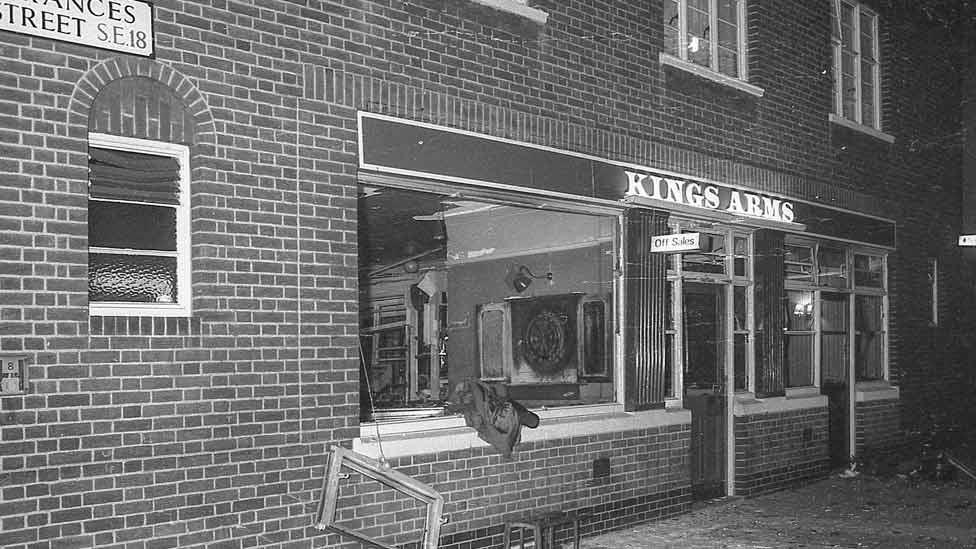
Fred Westmoreland had been playing darts with Alan Horsley near the window
The deaths of two men in a London pub bombing in 1974 have been "brushed over" and forgotten, an ex-soldier who survived the explosion has said.
Alan Horsley, 20, and Richard Dunne, 42, died and 35 were injured after the IRA blew up the King's Arms, Woolwich.
Inquests into bomb deaths in Birmingham and Guildford have resumed but the Woolwich inquest remains unfinished.
Fred Westmoreland said: "Those who died deserve serious attention be given to what happened to them."
Two of the wrongly-jailed Guildford Four were falsely accused of murdering Mr Horsley and Mr Dunne after the attack.
The BBC has learned their convictions brought the inquest to an end.
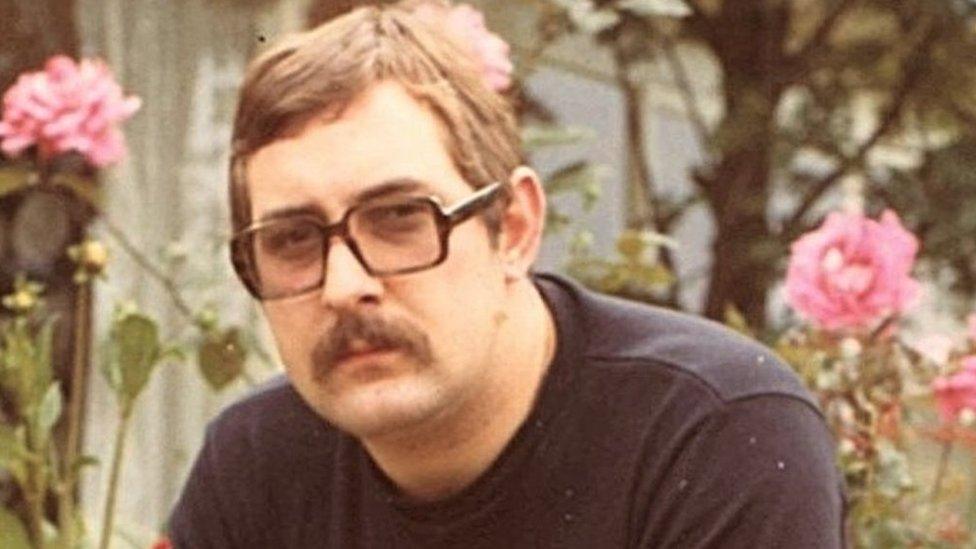
Fred Westmoreland, seen here in 1972, aged 24, lost part of one his legs in the explosion
'Smoking thing on floor'
Mr Westmoreland, who is now a councillor in Wiltshire, remembers Mr Horsley as being "like a brother".
Then 26, he was playing darts with Mr Horsley and another man in the King's Arms on 7 November 1974 when the bomb came through a window.
"There was a tinkling noise. I looked up and saw a hole in the window. I saw this smoking thing on the floor," he said.
"I had to go past it. It was the only way out. I had my hands on the door and then I was on my knees and still holding the door, but the door was on top of me.
"The lights were all out. What happened behind me, I had no idea."
Mr Westmoreland, who lost part of his leg in the bombing and his hearing in one ear, remembers how Mr Horsley made the pub his local.
"We all envied his looks," he said. "He was quite stylish and for some reason he seemed to enjoy playing darts and chatting to people as well as going out with girls.
"He was sort of shy and not pushy. He was just a nice lad, the sort of person you would be happy to have as your younger brother.
"He used to get teased mercilessly but he just laughed. He had a nice life, a good life in front of him."
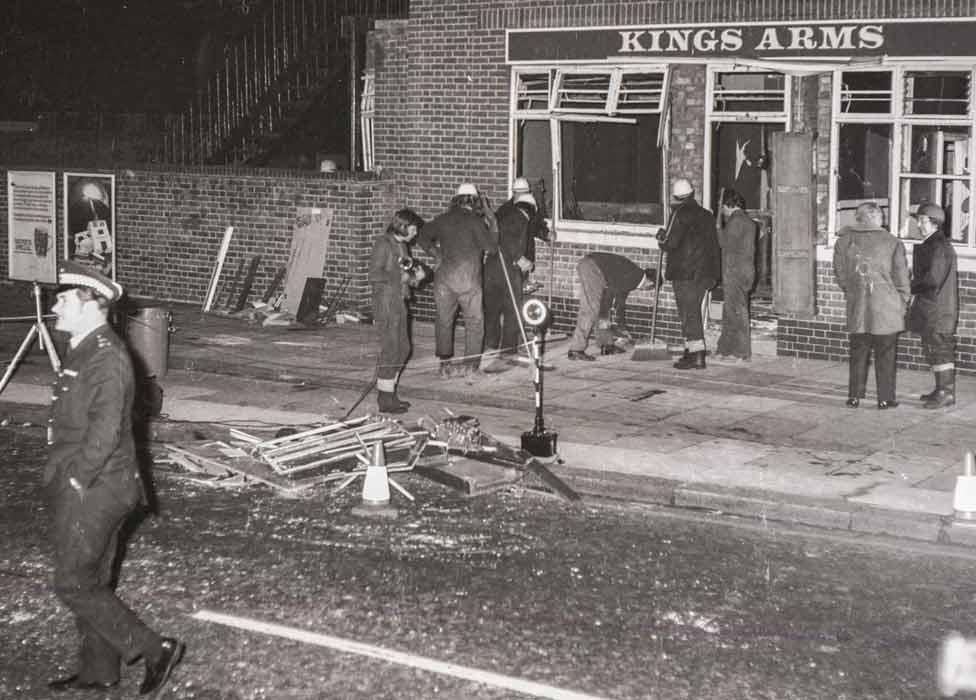
The Woolwich bomb killed two and injured 35
The explosion in Woolwich was one of a series of pub bombings in England carried out by the IRA. It happened a month after five people died in Guildford and two weeks before bombs at two pubs in Birmingham killed 21 people.
The inquest processes have resumed into the deaths in Birmingham and Guildford but Mr Westmoreland said he had mixed feelings over whether the same should happen in London.
He said: "To me it's done, but I believe those who died deserve that serious attention be given to what happened to them although it's 50 years ago.
"I'm a soldier. I took on a job which I knew had risk. Richard Dunne was a soldier and part of the risk. Alan Horsley was a different story, as those who died in Birmingham were a different story."
And he added: "I believe someone would want to acknowledge Mr Horsley's death. It was all brushed over and very quickly everyone forgot about him."
But Mr Westmoreland, who had served in Belfast before he moved to London, said an inquest would not bring Mr Horsley back and the most it could do was conclude he was killed by the IRA's Balcombe Street gang, who admitted responsibility - or to try to "pin blame on police and the security services".
Greenwich councillor Nigel Fletcher, who in the past campaigned for a memorial to the two men killed, said any future proceedings should be guided by the families of those who died and any survivors, adding: "Some may feel they don't want to reopen it but some may feel it's necessary to give important closure."
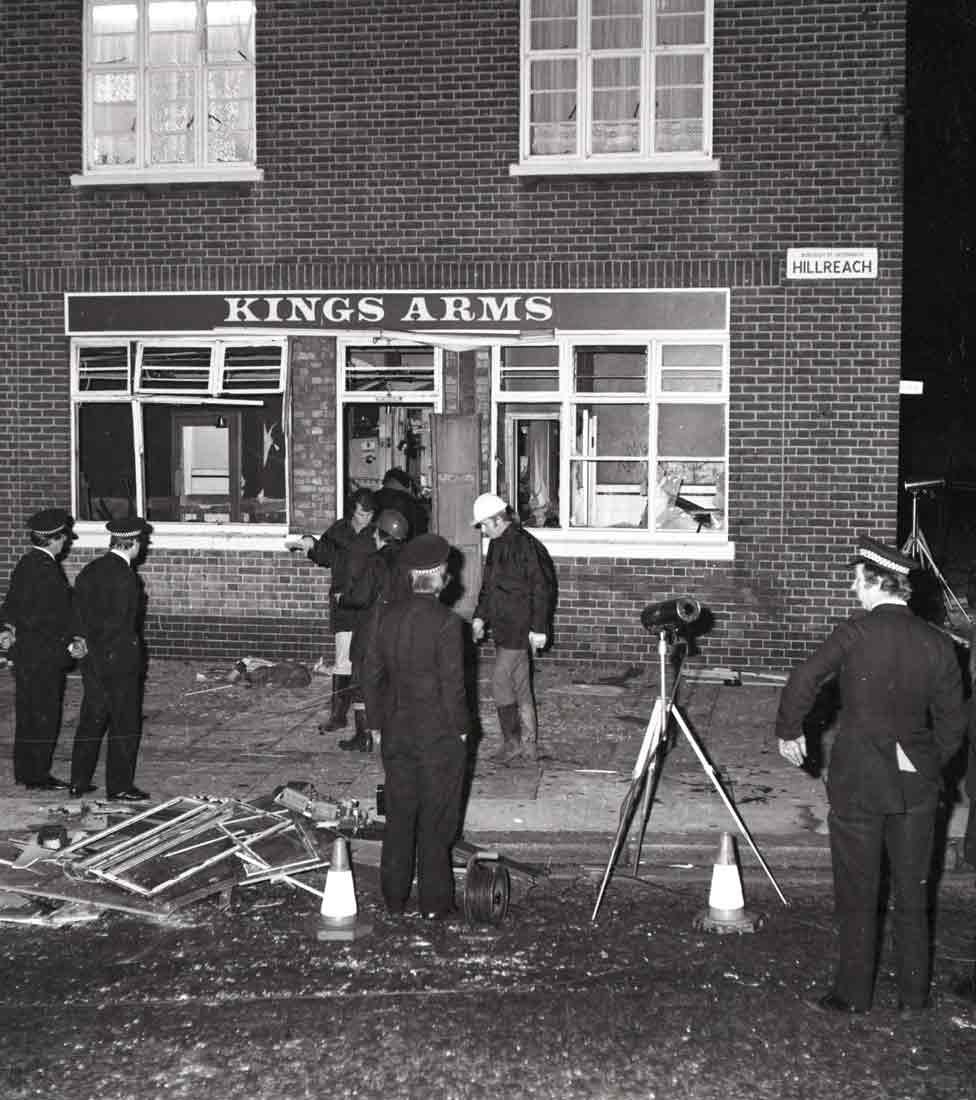
The BBC has learned the Woolwich inquest remains unfinished
Christopher Stanley, from KRW Law, which has represented families in all the proceedings, said there had been no independent investigation into the Woolwich pub bombing.
"In Northern Ireland, fresh inquests have been directed into a number of conflict-related multi-death incidents including the murders at Kingsmills in 1976 and the Ballymurphy Massacre in 1971.
"Woolwich, Guildford and Birmingham must be viewed as conflict-related and therefore investigated to the same standards as apply now in Northern Ireland."
After the BBC asked to see the inquest papers at London Inner South Coroner's Court, the coroner's office confirmed an inquest was not undertaken. On 24 October 1975, the coroner was notified by the Old Bailey that Paddy Armstrong and Paul Hill had been convicted and sentenced and in light of this, the inquest was not resumed.
Mr Hill and Mr Armstrong were cleared in 1989 after serving 15 years in jail. The wrongful convictions over the Guildford and Woolwich pub bombings - which became known as one of Britain's biggest miscarriages of justice - were later examined in a controversial five-year inquiry by Sir John May, external, whose papers are now held by the Home Office.
Mr Horsley and Mr Dunne have been included on a memorial on brass plaques in St George's Chapel, Woolwich, and they are also commemorated in a book of remembrance in Woolwich Town Hall.
Plans were approved to demolish and redevelop the pub in Frances Street but work has not yet begun.
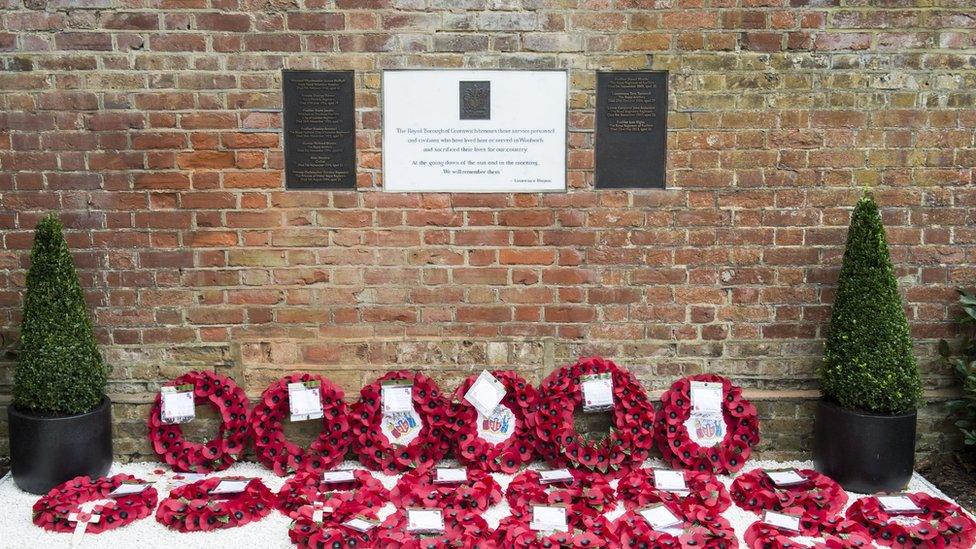
Alan Horsley and Richard Dunne have been included on a memorial in Woolwich
- Published31 December 2019
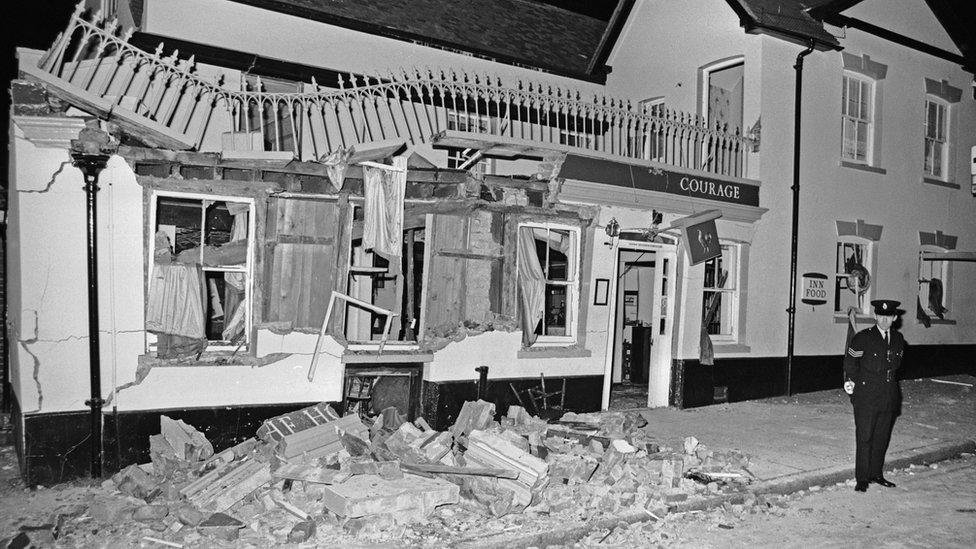
- Published18 December 2019
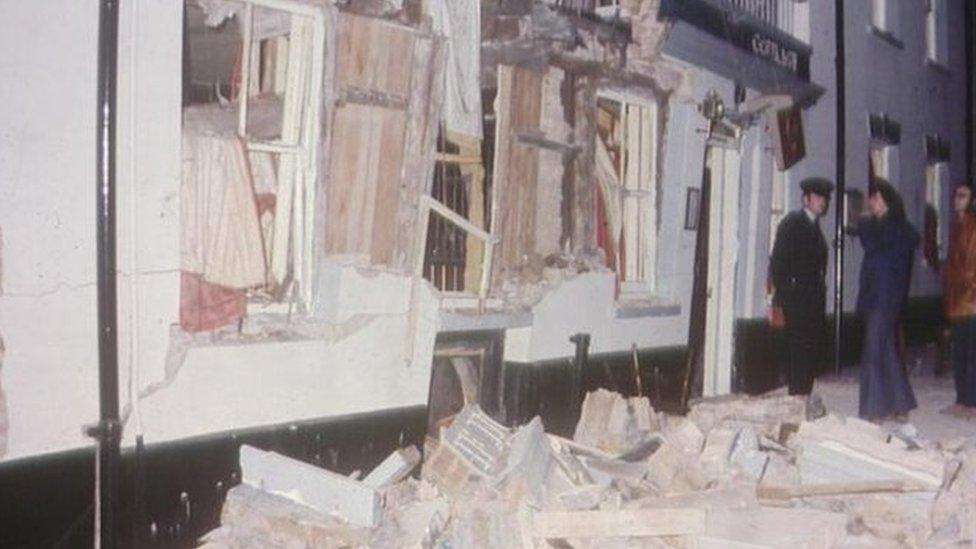
- Published24 May 2019
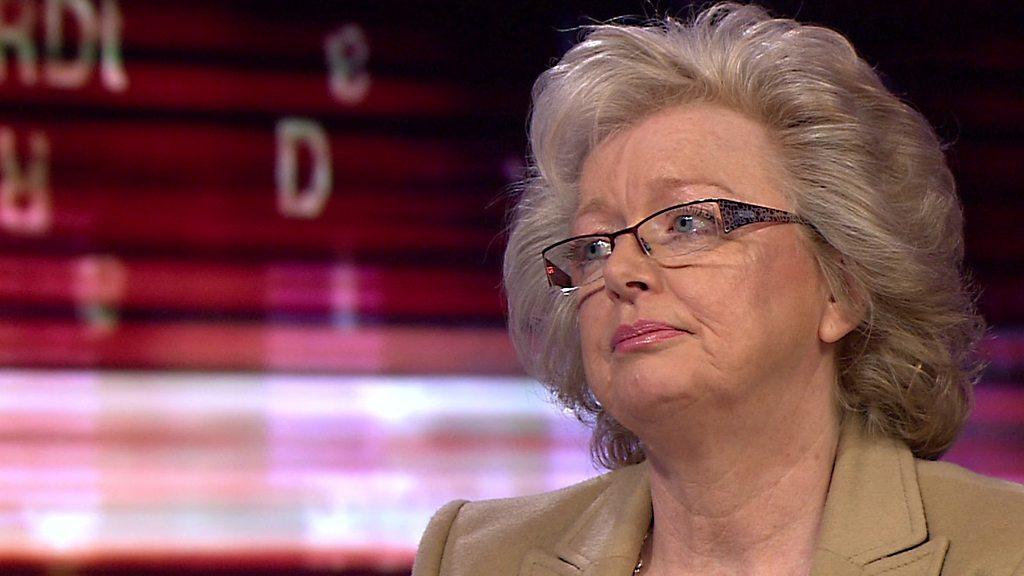
- Published5 April 2019
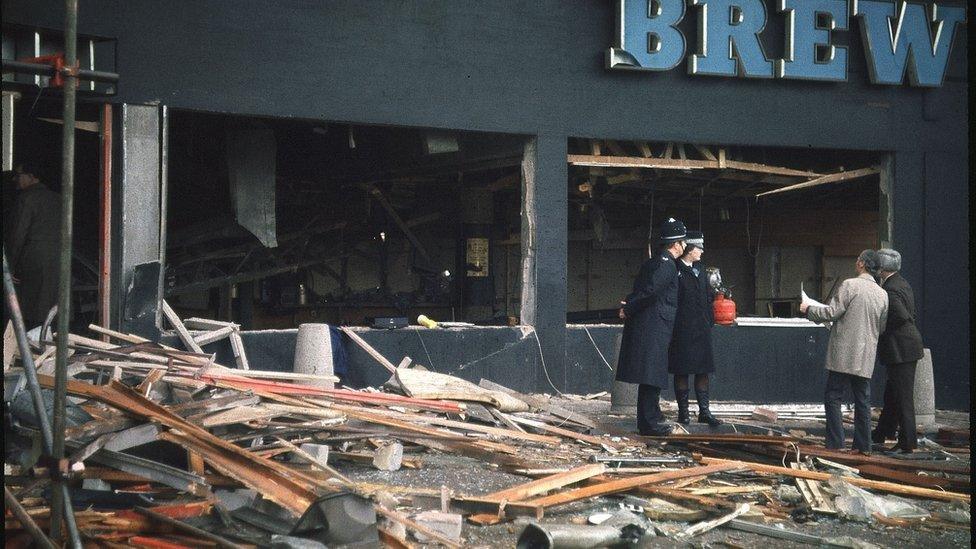
- Published5 April 2019
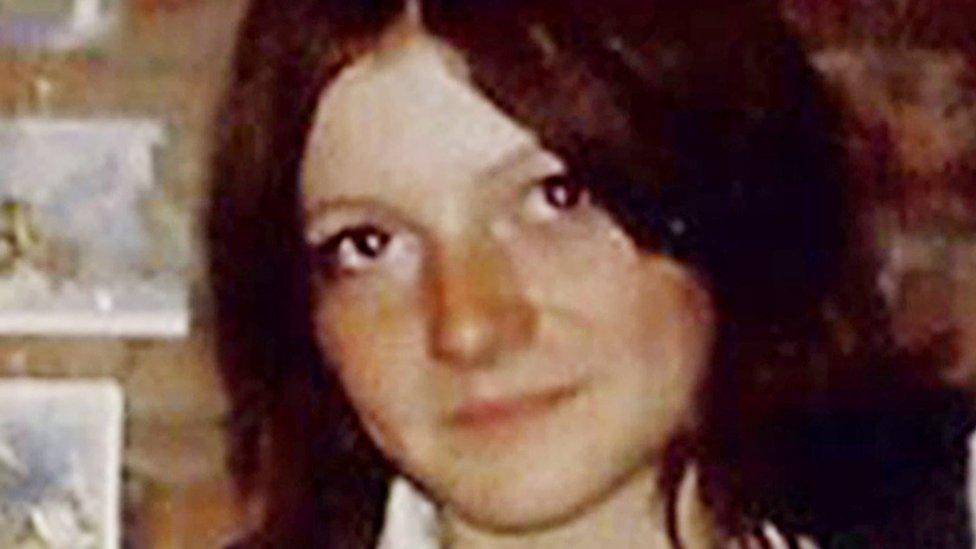
- Published31 January 2019
